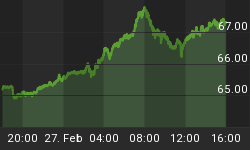Fear, uncertainty, and doubt. FUD. Any piece of perceivably bad news for cryptos seems to fall under this umbrella. Government crackdown rumors, analysts shouting “bubble,” dismissal from bankers, or claims of crime and terrorism. Every time the price of cryptos falls, there are at least a few of these headlines not far behind. And a day or two later, another piece of news will come out to dispel the rumors, stabilizing the markets.
In the past year, this pattern has become increasingly prevalent, and it’s not just causing crashes. Moon-worthy price predictions, celebrity pumps, Facebook ads, and Reddit echo chambers claim to promote awareness, but instead, often leave people eager to dump money into a project they do not truly understand.
And as institutional money pours in, the headlines are becoming even more intense. Now, you can’t even make it a full day without seeing the latest doomsday/moon scenario for cryptos.
Who is guilty? Well, all of us. From Reddit’s HODL armies, to the near hourly “crash” and “soar” articles from every major news organization. Cryptocurrencies would not have grown as big or as fast without it, but is this blatant market manipulation, or simply excitement?
These articles get a huge amount of views, pro-BTC memes get thousands of upvotes and reposts, and John McAfee gets TV interviews. There’s now an entire industry built around covering price swings, new hot coins, blockchain revelations, and “the Death of Bitcoin.” (Bitcoin has now died 245 times)
This is uncharted territory.
Veteran holders may dismiss the negative news, yet are often happy to base their entire crypto-philosophy around the promise of a Lambo down the line. But this attitude, and the promise of financial gain has created its own set of problems, as well.
Vulnerable “investors” are now rushing to buy cryptos with credit cards, with some even leveraging their homes as the fear of missing out takes hold. This isn’t exactly support for the technology, this is a manifestation of a get-rich-quick mindset promoted through online media. And the repercussions of this behavior could be severe.
With every hill on the crypto-coaster, it’s fair to suggest that, inspired by a fresh wave of good news, hundreds of FOMO’ers jump on the bandwagon in an overvalued market, and feel the sting as the bad news comes crashing down.
It’s no wonder governments across the globe are issuing warnings and scrambling for regulation. That may not be a bad thing.
Regulation isn’t the doomsday scenario that it is made out to be. There is an idea or maybe just a fear that if regulatory platforms are introduced, they could ruin cryptocurrencies. This isn’t necessarily the case, and frankly, it highlights a major problem within the community if one tweet can spark 100 news stories and a 20 percent crash in the price of cryptos across the board.
This is a technology that very well has the power to upend traditional financial systems, regardless of the price-per-coin, but this idea has taken a back seat as price points crowd the headlines. Who doesn’t want to get rich, after all?
It’s no secret that governments across the globe have complicated feelings about cryptocurrencies. They’re a direct threat to a banking system that is both comfortable and works in their favor. The key here, however, is that this is happening whether they want it to or not. It is in a government’s best interest to create supportive regulation and to work with the community to create said regulation.
Adoption works in our favor.
When governments create supportive regulation, it allows more people to get into the space safely, it lowers volatility, and it legitimizes the technology we’re all excited about. We all want our favorite coin to gain value, but artificially pumping the price through sensational headlines doesn’t help. And as we’ve seen, this trend works both ways. While they generate tons of traffic for the websites pushing this propaganda, ultimately, it puts the entire community into a dangerous position.
This technology is something to be taken seriously, but with its legitimacy constantly undermined by over-coverage of unverified ban rumors, million-dollar price predictions, and scared bankers, the entire notion of a decentralized currency is reduced to an “investment scheme.”
So, next time you Google “bitcoin news,” skip the price predictions, take the crackdown headlines with a grain of salt, and please, please, don’t click anything that has the word “WARNING” in all caps.
By Michael Kern via Crypto Insider















